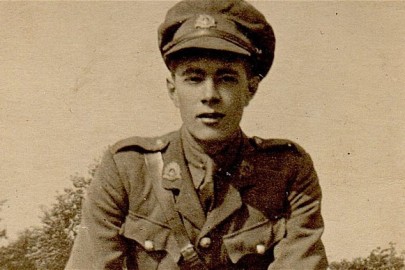
This Repeat about Michael Wharton’s A Dubious Codicil, from August 2010, seems an appropriate companion piece to James Hamilton’s discourse on nostalgia, since its concluding sentence is perhaps the purest expression of misguided British nostalgia I’ve ever written…
A Dubious Codicil is the second part of Michael ‘Peter Simple’ Wharton’s autobiography. You can buy it along with the first, The Missing Will, in a single volume, but it’s very much an autobiography of two halves.
The Missing Will is a hoot, covering with deadpan wit Wharton’s childhood in 1920s Yorkshire, his remarkably indolent, drunken Oxford university career and his service in India with the Royal Artillery during World War II. The army chapters are the peak of the whole thing, reminiscent of Evelyn Waugh’s Sword of Honour trilogy in their descriptions of the British military’s muddle-along administrative incompetence. As Wharton notes:
Another discovery was that life in the Army – at any rate as a Gunner – was hilariously funny. What could be funnier, to begin with, than being known as ‘1083777 Gunner Wharton MB’?
Wharton has a keen sense of the ridiculous, but other normal human sensibilities elude him. On leave from the army, he feels
a sense of something lacking. It was not that I was not glad to see my wife and child…glad to wander about the familiar lanes and woods and hills. But some meaning has gone out of them. All these things belonged to a phase of life which was now receding into the past beyond recall.
Thereafter – which means two-thirds of The Missing Will and the entirety of A Dubious Codicil, a span of some 50 years – Wharton carries this hollowed-out feeling everywhere, through his job at the BBC and then, for which he became famous, his long career as the Telegraph’s Peter Simple. This is far from a flattering self-portrait: the apparent callousness with which he seems to abandon his first family defies any sympathy. A Dubious Codicil covers the Peter Simple years, most of which Wharton spends drunk in the notorious Fleet Street boozer The King and Keys. There is much comedy here, beautifully delivered (the tales of bar-propping monsters like Philip Weston are especially ripe) but I found the book on the whole dispiriting. Wharton’s relentless misanthropy (stemming from fear of being thought a fraud, mostly) becomes increasingly hard to swallow, and though he skewers the smug follies of liberalism well and often, his thinly disguised anti-Semitism is particularly tiresome (and particularly odd, considering his German-Jewish parentage and birth name of Nathan).
But more than that, reading A Dubious Codicil had the effect of reinforcing a troubling sense I sometimes have – and which, knowing it to be irrational and over-simplified, I try but often fail to resist – that Britain itself peaked in the years 1939 to 1945, when the nation summoned all that was good about itself and threw it at the destruction of Nazi Germany. The British soul was at its zenith when everyone had clipped accents and sex was furtive and all men wore hats and leapt onto steam locomotives as they pulled out of the station (before alighting at Boxhill and Westhumble) and thin-moustached officers in tropical outposts sweated gin-and-tonic and quoted Latin proverbs; and everything that’s happened since, from the welfare state to The X Factor to the Guardian website, has been unmistakeably symptomatic of our purposeless spiritual decline.











is there a word for “misguided nostalgia”? – if not there should be.
Well, to be fair, all reality telelvision/”talent” shows are a sign of purposeless spiritual decline, if not direct signs of the apocalypse.